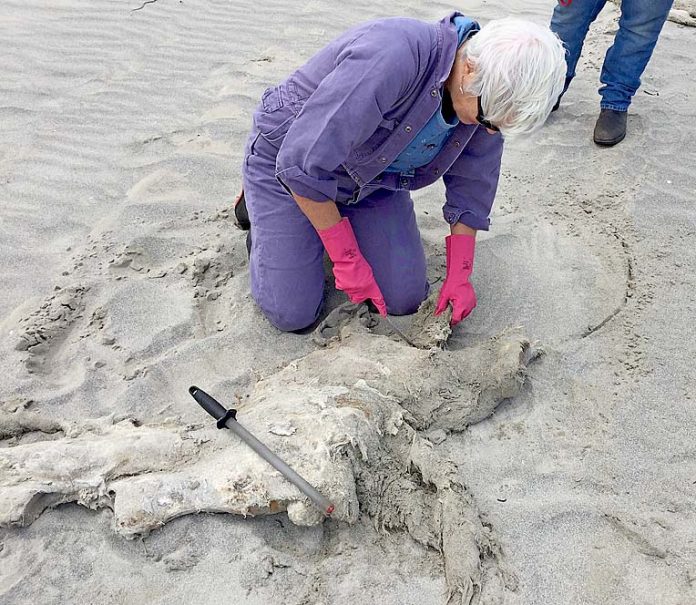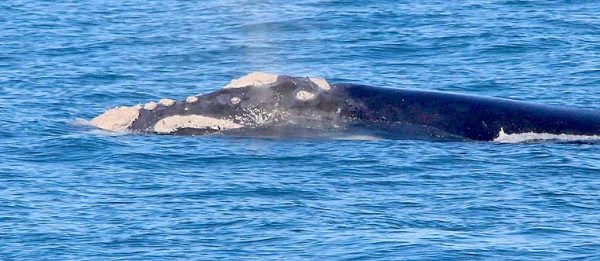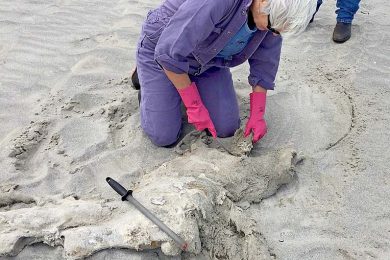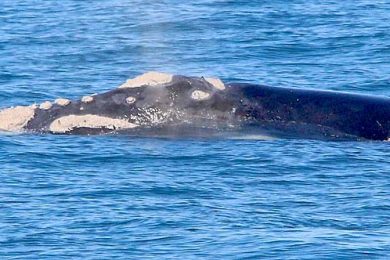

BONES of a young Southern Right Whale – which was seen alive in Victor Harbor last year – were last week collected from a Kingston beach by researchers from the South Australian Museum.
Found initially by local resident James Ferguson in September last year as a full carcass, the remaining tail bones will now be displayed at the state museum and used in the long-term for further research.
Not usually found along the coast of the South East due to many reefs, senior mammals researcher Cath Kemper – who was among the group that travelled to Kingston this week – said it is most likely the whale died at sea and was brought into the beach with the current.
“The Southern Right whales tend to be seen more around Port Lincoln and Victor Harbor and do not usually venture to the South East as they have to negotiate their way through the sharp and rocky reef,” she said.
“From further inspection of the bones and comparing them to ones we already have at the museum, we are fairly certain it was in fact a young whale that had been seen in Victor Harbor only three weeks before James finding it in Kingston.”
Shortly after being found by Mr Ferguson in September, photographs of the whale’s head were sent to citizen scientist Elizabeth Steele-Collins in Victor Harbor to compare with images of whales seen there in the weeks prior.
“Like humans with fingerprints, Southern Right whales can be identified by the white markings on their heads and amazingly Elizabeth was able to confirm the dead one found in Kingston had been in Victor Harbor,” Ms Kemper said.
“According to locals it had been acting oddly and we think it must have been unwell and ventured out to sea where it unfortunately died and was floating dead before being washed ashore.”
Grateful for the assistance of both Mr Ferguson and Ms Steele-Collins, Ms Kemper said without the general public’s help discoveries such as this would not occur.
“We cannot be everywhere at once so any assistance from people in communities across the state is greatly appreciated,” she said.
“James has kept us up to date with how the whale was deteriorating and as soon as he informed us the bones were breaking up we knew we had to get down to Kingston to collect them.
“It is great to have bones as specimens in our museum as a long lasting record to go along with our information kept on computers.”

Picture: Debbie Prestwood









